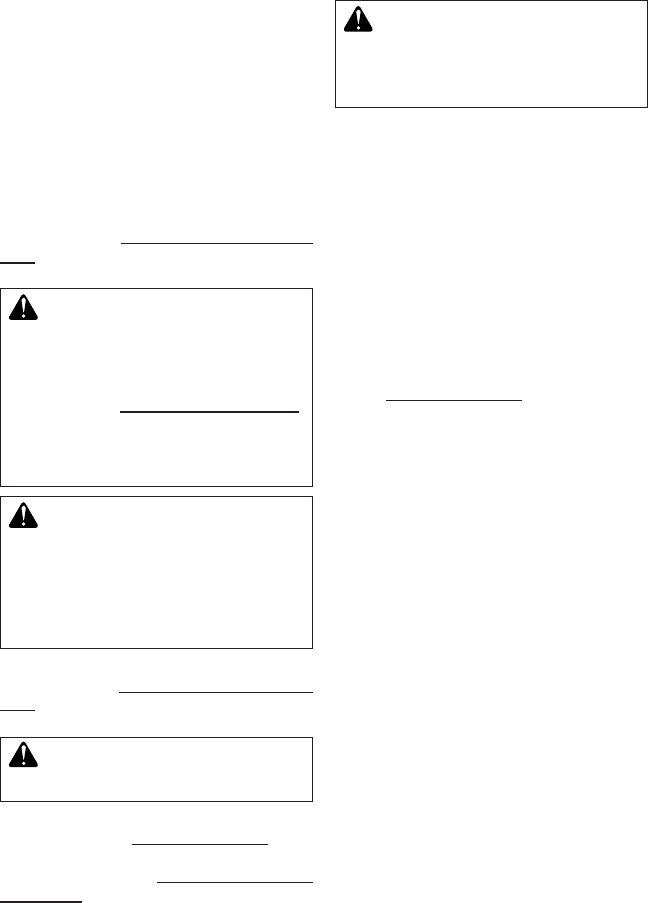
www.fmiproducts.com
125078-01B 25
Glass must be cleaned periodically. During
start-up it is normal for condensation to form
on the inside of the glass causing lint, dust and
other airborne particles to cling to the glass
surface. During initial start-up a slight lm may
form on the glass due to paint curing. The
glass should be cleaned several times with a
non-ammonia, nonabrasive household clean-
er and warm water after the rst two weeks
of operation. Thereafter, clean the glass two
or three times during each heating season,
depending on the usage and circumstances
present. Refer to Removing/Replacing Glass
Door, page 19 of this manual when removing
glass door for cleaning.
WARNING: Only parts sup-
plied by the manufacturer
should be used when replacing
broken or damaged glass door
panels (see Replacement Parts,
page 36). Glass door panel are
complete units. No substitute
materials may be used.
CAUTION: Wear gloves and
safety glasses while handling
or removing broken glass. Do
not remove if glass is hot. Keep
children and pets away from
glass.
If glass has been broken, carefully remove
glass door (see Removing/Replacing Glass
Door, page 19). Vacuum all glass pieces with
a shop vac.
CAUTION: Do not vacuum if
pieces are hot.
Use only glass door replacement intended for
this replace (see Replacement Parts, page
36 for detail on ordering). No substitutions
may be made. See Removing/Replacing
Glass Door, page 19 for instructions for re-
placing glass doors.
CLEANING AND MAINTENANCE
Continued
WARNING: Do not operate
replace with glass door un-
latched, removed, cracked or
broken.
pILOT AND BURNERS
• Remove material before cleaning burners
and replace when cleaning is complete.
• Burner and controls should be cleaned
with compressed air to remove dust, dirt
or lint.
• Use a vacuum cleaner or small, soft bristled
brush to remove excess dust, dirt or lint.
LOGS
• Use a vacuum cleaner to remove any
carbon buildup on logs.
• Replace material periodically as needed.
See Replacement Parts, page 36.
VENTING SYSTEM
Conduct annual inspection of the venting
system following these guidelines:
1. Check areas of venting system that are
exposed to the weather for corrosion (rust
spots or streaks and, in extreme cases,
holes). Have these items replaced im-
mediately by a qualied service person.
2. Remove the vent cap and shine a ash-
light into the vent. Remove any foreign
material.
3. Check for evidence of excessive con-
densation. Continuous condensation can
cause corrosion of caps, pipes and ttings
and can be caused by having excessive
lateral runs, too many elbows or exterior
portions of the system being exposed to
cold weather.
4. Inspect joints to verify that no pipe section
or tting has been disturbed and loos-
ened. Check mechanical supports such
as wall straps for rigidity.


















